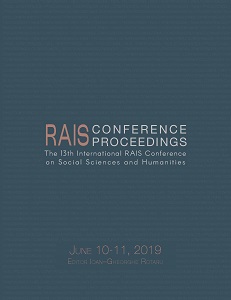Political Economy of Connectivity: China’s Belt and Road Initiative
Political Economy of Connectivity: China’s Belt and Road Initiative
Author(s): Tolga Demiryol
Subject(s): International relations/trade, Geopolitics
Published by: Scientia Moralitas Research Institute
Keywords: China; the Belt and Road Initiative; geopolitics; development;
Summary/Abstract: There are ongoing academic and public debates on the nature of China’s Belt and Road Initiative (BRI). While some observers hold that the BRI is primarily about economic development, others see it as a grand strategy of a great power with hegemonic aspirations. Is the BRI about development or geopolitics? This article adopts a political economy approach to bridge the developmental and geopolitical perspectives. The main argument is that the BRI signifies an attempt by the Chinese state to manage internal problems of capital accumulation by externalizing development on a trans-regional scale. The problems of capital accumulation under China’s export-oriented growth model indicates a particular form of spatial fix via the BRI, which goes beyond the exportation of excess industrial/financial capacity and seeks to transform external productive spaces through inter-regional connectivity. The process of constructing new nodes and infrastructures of capital creates space for new forms of asymmetric interdependencies, rendering it prohibitively costly for most BRI partners to exit China-centered networks. To the extent that such asymmetric dependencies can be leveraged for strategic purposes, the BRI serves a geopolitical as well as a developmental function.
Book: Proceedings of the 13th International RAIS Conference on Social Sciences and Humanities
- Page Range: 168-180
- Page Count: 13
- Publication Year: 2019
- Language: English
- Content File-PDF

